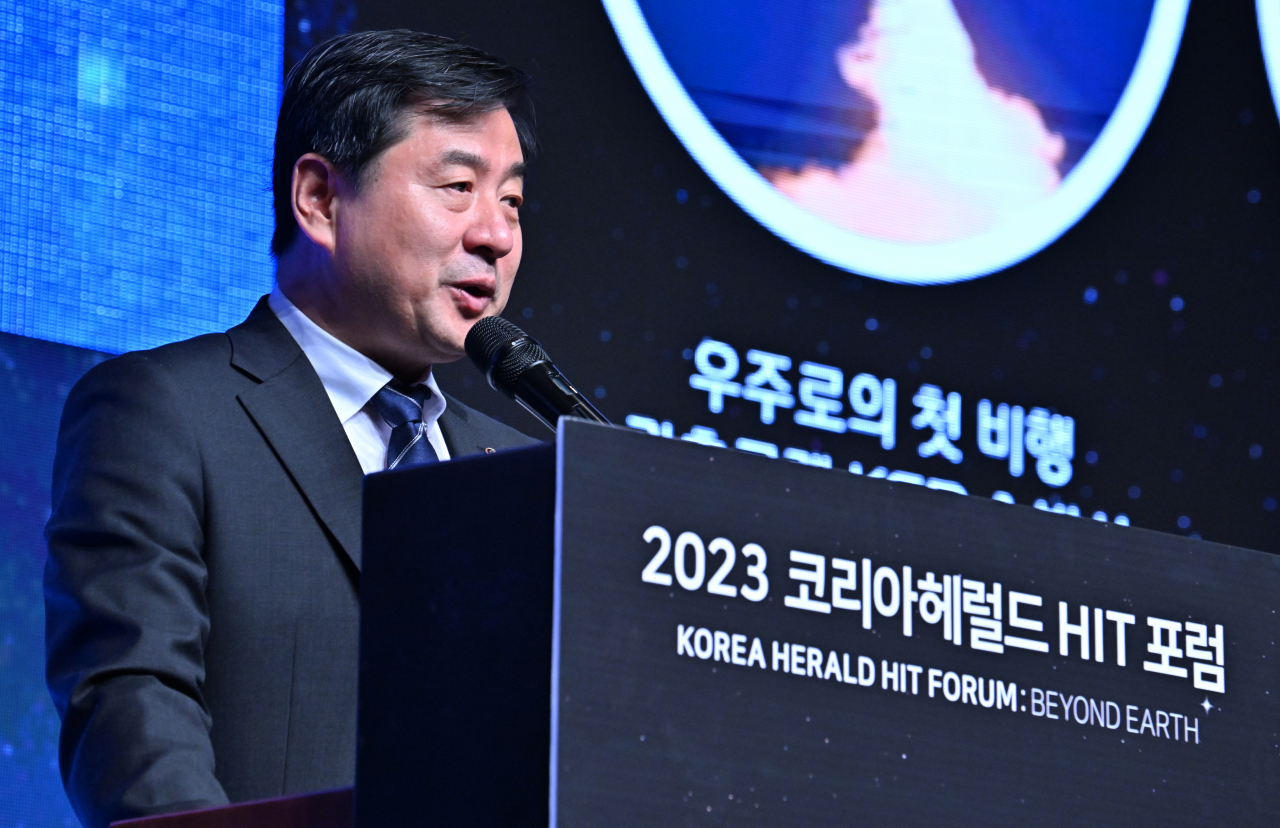 |
Lee Joon-won, senior vice president at Hanwha Aerospace speaks during The Korea Herald’s HIT Forum held on Wednesday at the Shilla Seoul, in Jung-gu, central Seoul. (Im Se-jun/The Korea Herald) |
Hanwha Aerospace said Wednesday it plans to become a total services provider for outer space, ranging from space-based internet, future air mobility and cosmic data analysis platform.
“Although the space sector is considered a high-risk business, it is a key infrastructure for sustainable growth of our future generation. With the combination of big data and artificial intelligence, the space economy is witnessing exponential growth,” said Lee Joon-won, senior vice president at Hanwha Aerospace, during The Korea Herald’s Humanity In Tech or HIT Forum held at the Shilla Seoul.
SpaceX has already proved the power of the “space-based internet” through the Starlink satellite system that was used by Ukrainian forces in the ongoing war with Russia, added Lee, stressing that 6G and space-air-ground integrated networks are expected to be commercialized from at least 2030.
In a move to prepare for the hyperconnected era, Hanwha is developing such communication network technology by setting up Hanwha Phasor in the UK, investing in the US-based satellite communications firm Kymeta and joining the board of the global satellite internet company OneWeb.
Satellite-based urban air mobility can be a game changer as well, according to Lee. The company is developing a UAM aircraft called Butterfly with US air mobility startup Overair, with plans to launch a pilot flight in the first quarter next year.
“Cosmic data analysis is another emerging business sector for space. It can be used in monitoring carbon emissions and forecasting crude oil prices by tracking down drilling sites,” said Lee. “Hanwha looks to create synergy with Satrec Initiative to secure a competitive edge in data analysis.”
Hanwha Aerospace also vowed to pave the way for the next generation’s journey to a new space era like the US’ “Apollo kids” -- a Korean expression that refers to space talent inspired by the Apollo’s landing on the Moon. The company looks to take a leading role in supporting the government’s accelerator program of small and mid-sized companies and startups in the space industry and talent development.
“Space is no longer an exclusive domain for advanced countries. South Korea has opened a new chapter in the space age after launching the Nuri rocket in May last year. It is the most remarkable achievement we have made in 33 years,” said Lee.
Having led the development and performance verification of a 75-ton liquefied engine within the rocket after winning a government bid, Hanwha is expanding its role to take charge in the fourth to sixth launches of the rocket starting from 2024.
The company aims to be part of another space project – this time led by the private sector -- to develop a next-generation launch vehicle capable of carrying heavier payloads than the Nuri rocket.







![[Today’s K-pop] Blackpink’s Jennie, Lisa invited to Coachella as solo acts](http://res.heraldm.com/phpwas/restmb_idxmake.php?idx=644&simg=/content/image/2024/11/21/20241121050099_0.jpg)